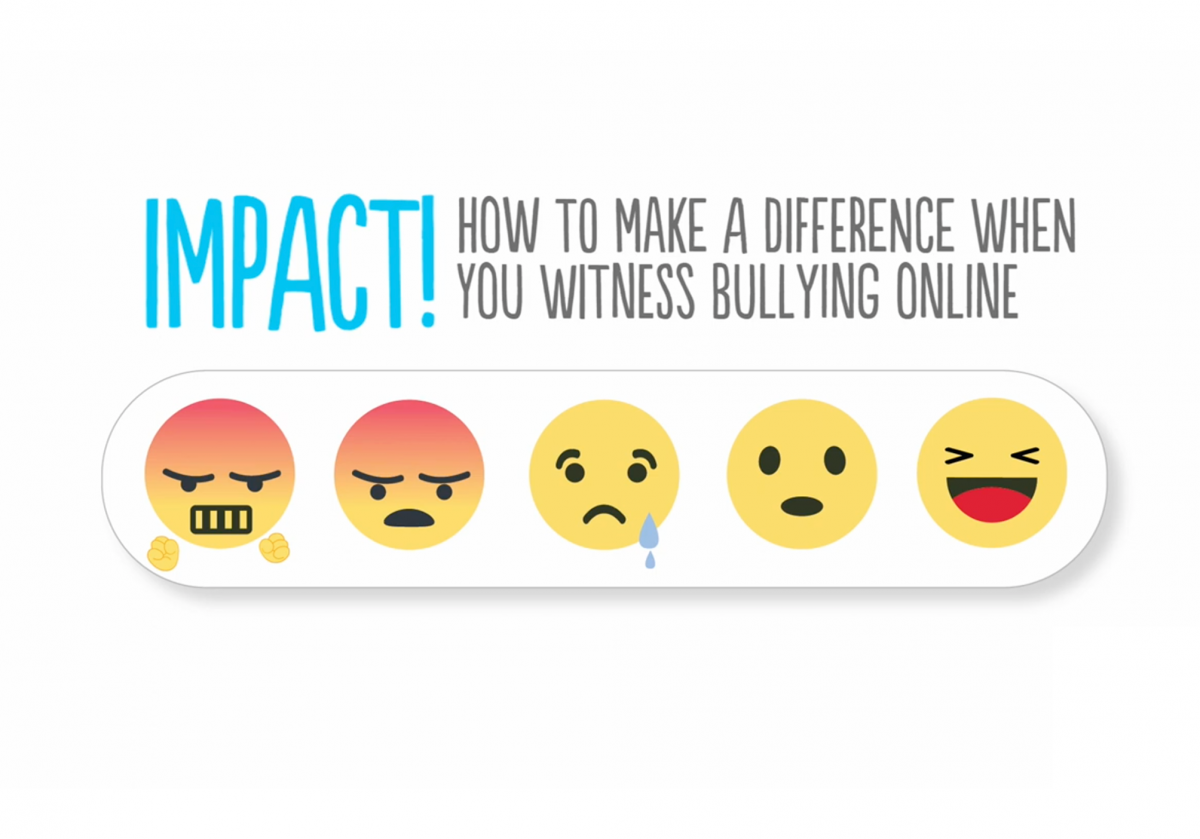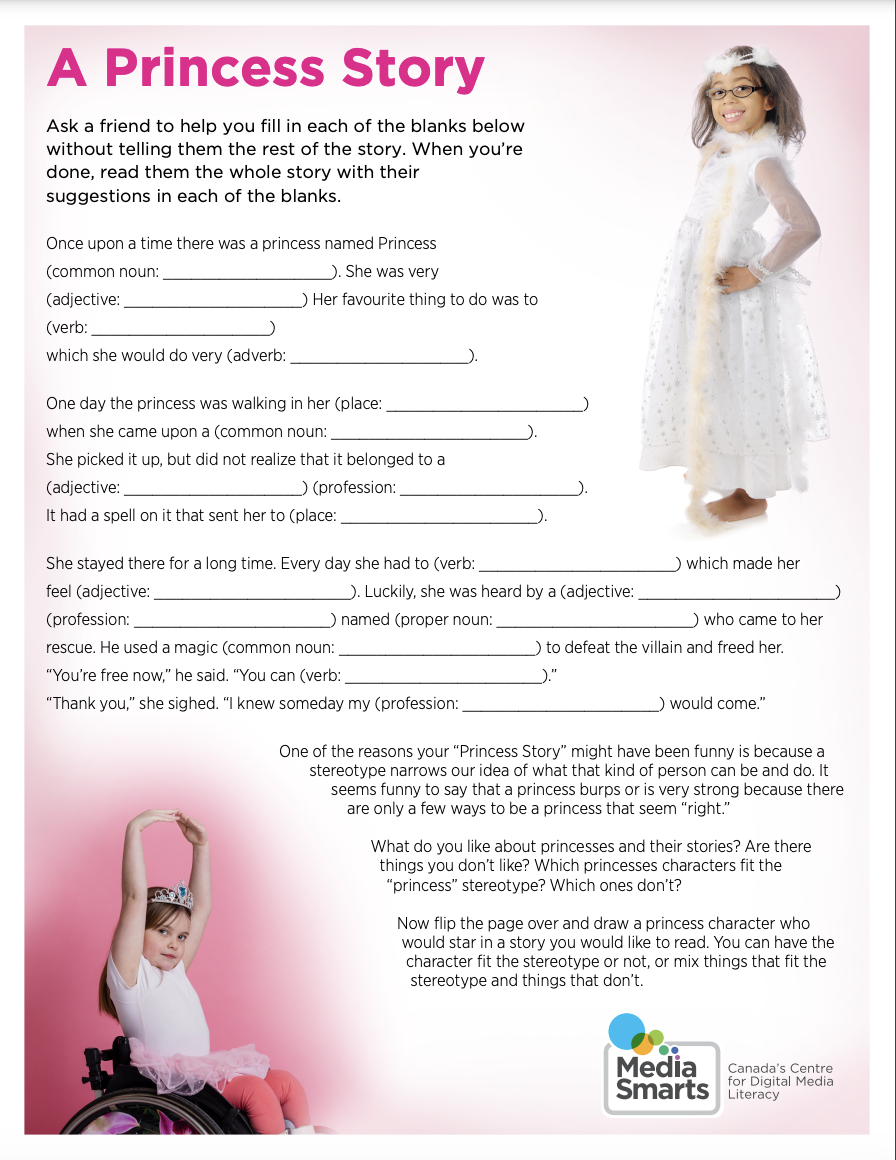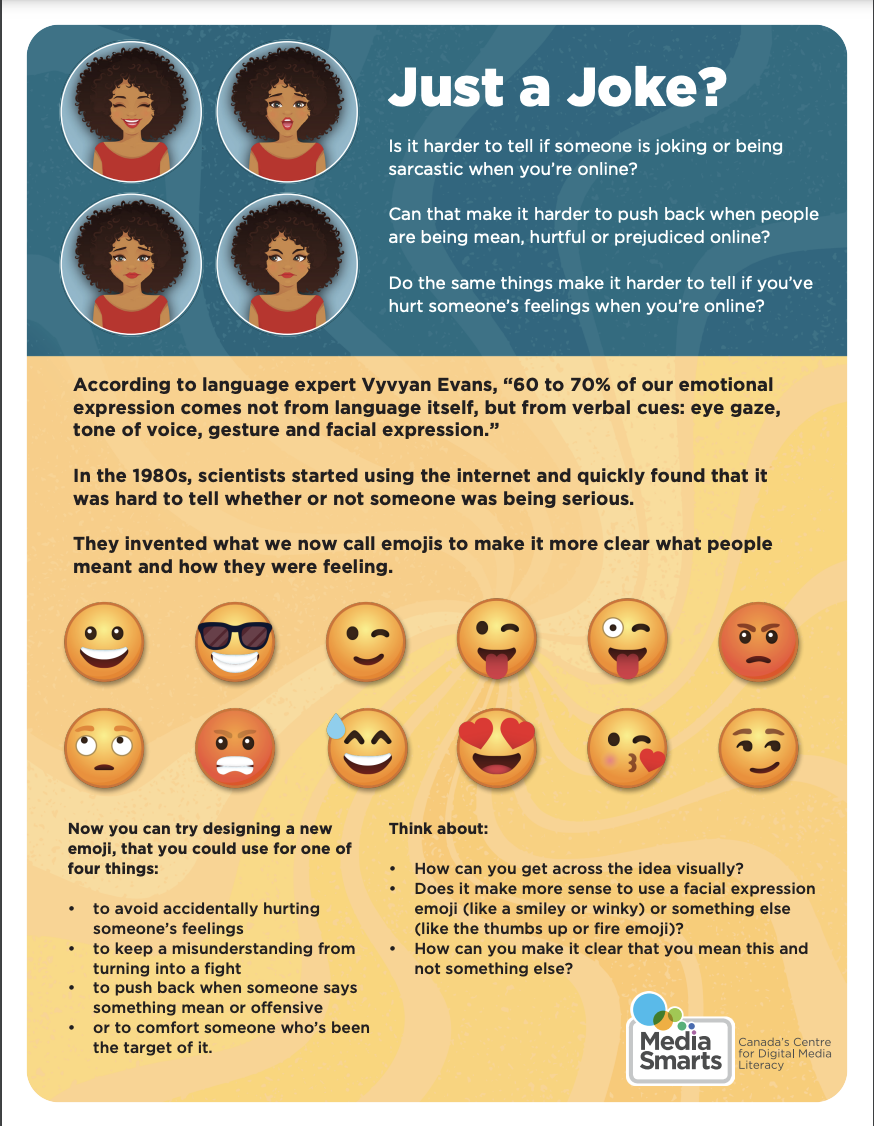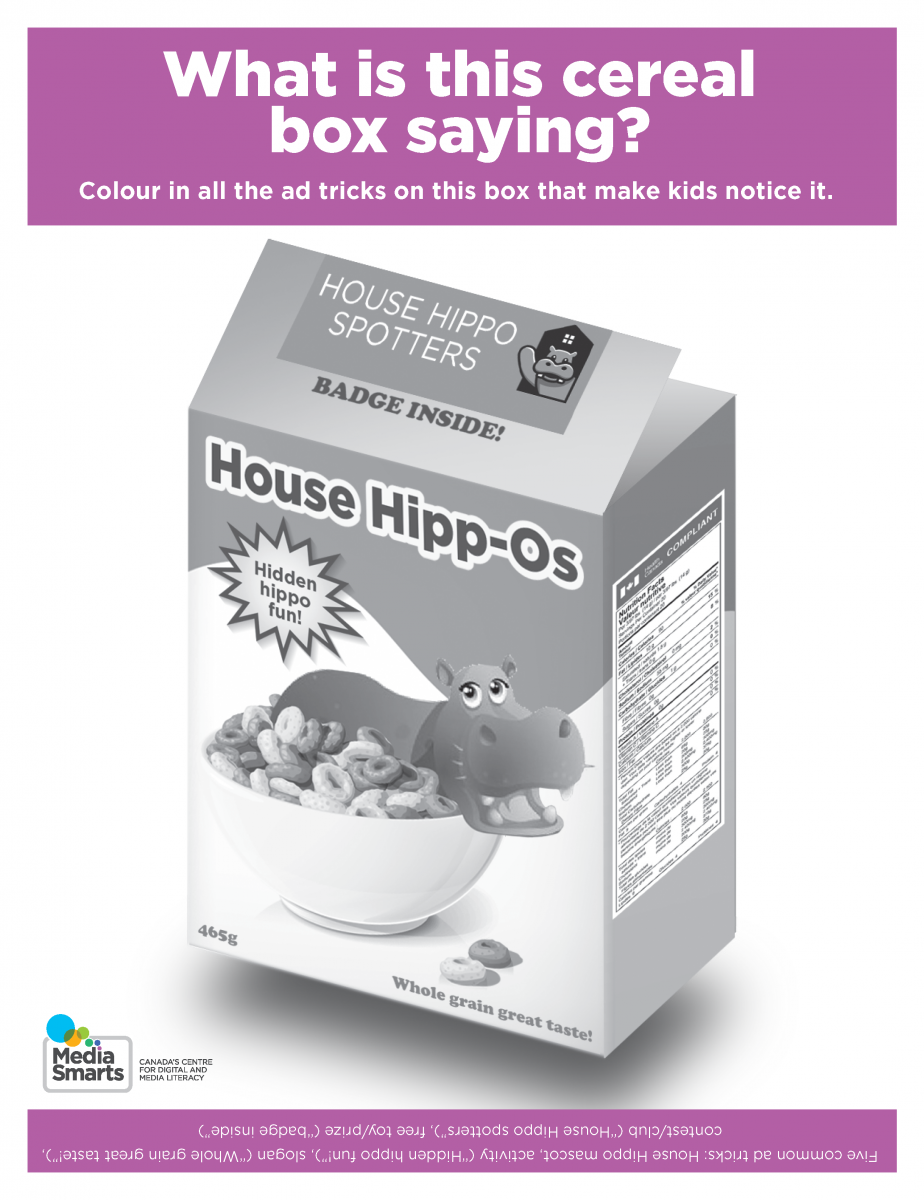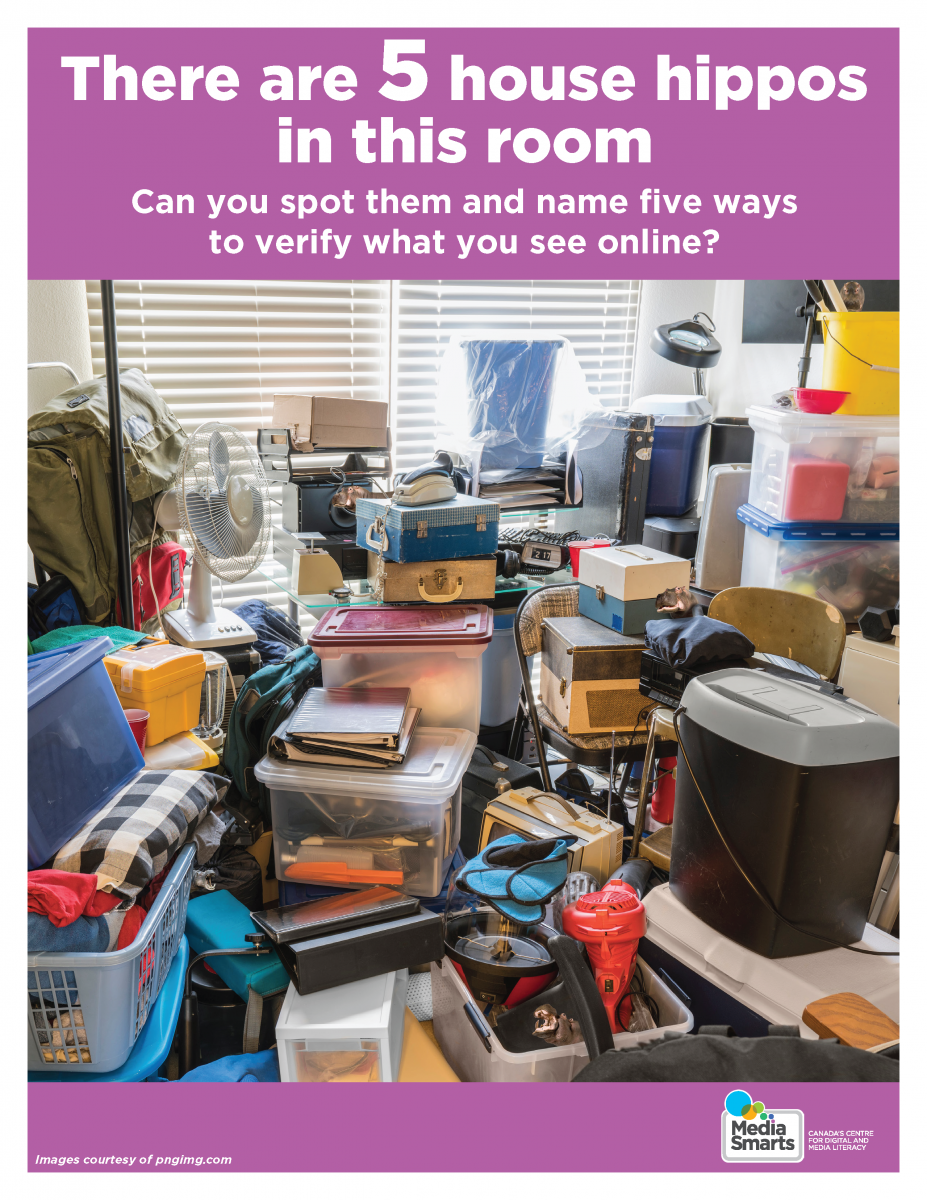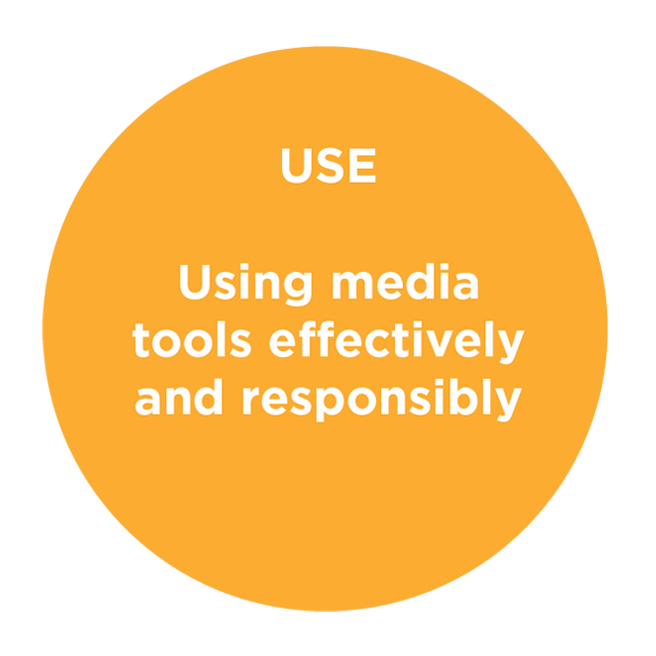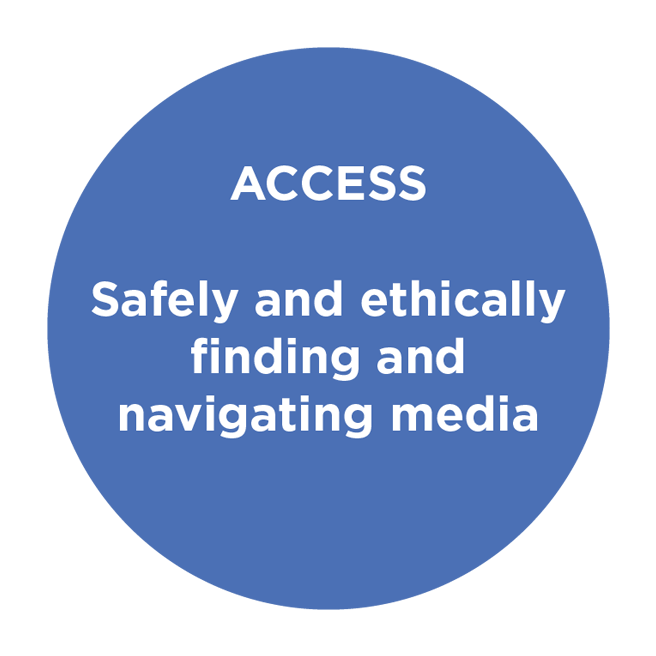
Media Literacy Week Teachers’ Hub
Welcome to the Media Literacy Week Teachers’ Hub!
This space is designed to provide you with plug and play lessons and resources on digital and media literacy topics that relate to this year’s event, brought to you by MediaSmarts and supported by the Canadian Teachers’ Federation.
The teachers’ hub features five days of lesson plans and activities curated around five media literacy themes - use, understand, engage (including activities for Digital Citizen Day), access and verify! We’ve also brought you special pre-recorded plug and play lessons, led by MediaSmarts experts, covering topics like body image, online hate and identifying what’s real online.
Plus, sign up to become a Media Literacy Week Teacher Collaborator here to join the conversation and be the first to learn about special events and activities!
Plug and play lessons
MediaSmarts has developed video versions of selected lessons designed so that teachers can present the lessons on a screen or digital whiteboard with minimal preparation. Each video lesson is presented by one of MediaSmarts’ media education specialists and includes opportunities for discussion, classroom activities and assessment
Printable activities
These printable activity sheets introduce basic media literacy skills and concepts and are suitable for use in homes, schools and libraries. They can be completed independently, but children will learn more if you discuss the activities with them.
This activity helps kids recognize and ask questions about gender stereotypes. Working with a friend or family member, kids fill in the blanks of a princess story.
In this activity, kids learn how emojis can be used to show people how they feel when communicating online.
What is this cereal box saying? (ages 5-10)
This activity introduces the idea that media are everywhere – including our own cupboards and grocery store shelves – and are the result of choices that were made with particular purposes in mind.
Spot the house hippos (ages 8-13)
For more than 20 years, house hippos have been helping teach kids to think critically about media. In this activity, five of them are hiding in a very messy room. Kids can turn the page to make sure they spotted them all and also learn five ways to verify anything they’ve seen online.
Daily lesson ideas for Media Literacy Week
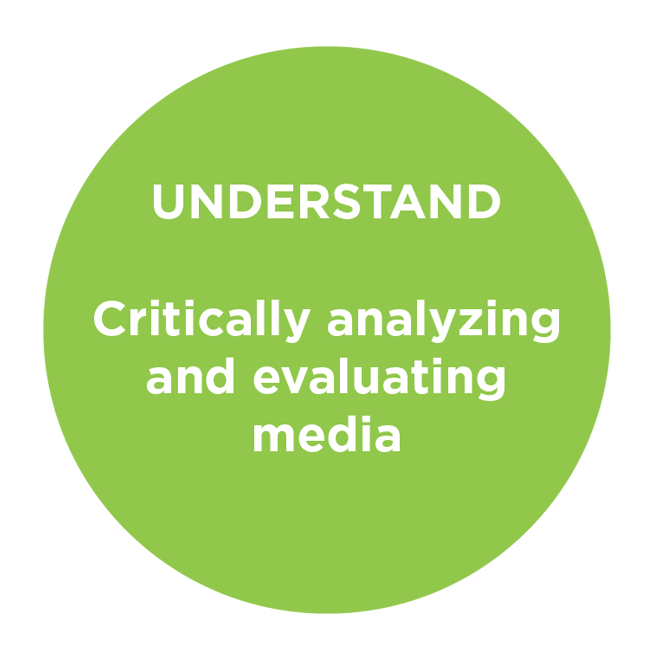
October 24, 2023: Understand
Grades K-3: Looking At Food Advertising
Printable activity sheet: What is this cereal box saying? (ages 5-10)
Grades 4-6: Looks Good Enough to Eat
Grades 7-8: Thinking about Hate**Plug and play video lesson available**
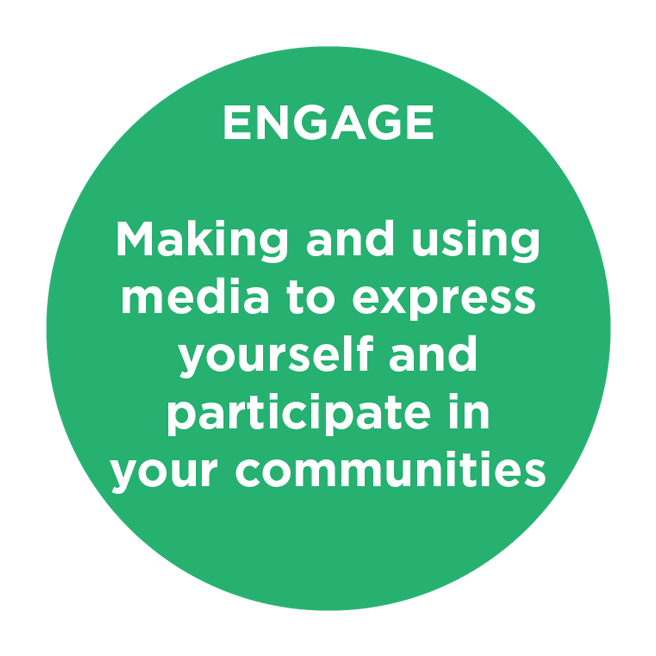
October 25, 2023: Digital Citizen Day - Engage
Grades K-3: Girls and Boys on Television
Grades 4-6: Prejudice and Body Image
Grades 7-8: Calling Out versus Calling In: Helping youth respond to casual prejudice online
Grades 9-12: Police in the Media
Grades 9-12: My Voice is Louder Than Hate: Multimedia platform
More resources:
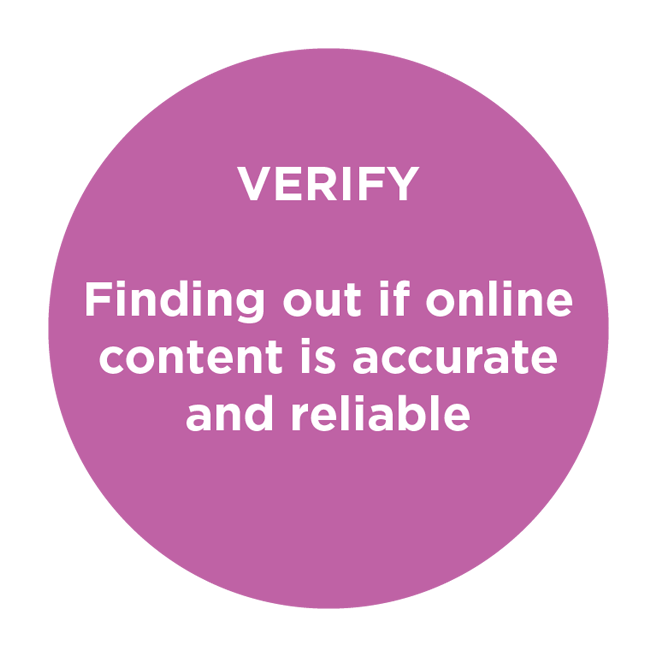
October 27, 2023: Verify
Grades K-3: Can You Spot the Ad?
Printable activity sheet: Spot the house hippos (ages 8-13)
Grades 7-8: Do Sharks Love Ice Cream?
Grades 9-12: Consensus or Conspiracy?
More Resources

Looking for more resources?
USE, UNDERSTAND & CREATE: A Digital Literacy Framework for Canadian Schools
USE, UNDERSTAND & CREATE provides a road map for teaching digital literacy skills in Canadian schools. The framework draws on seven key aspects of digital literacy – ethics and empathy, privacy and security, community engagement, digital health, consumer awareness, finding and verifying and making and remixing – and provides teachers with supporting lessons and interactive resources that are linked to curriculum outcomes for every province and territory.
Digital and Media Literacy Outcomes by Province & Territory
This web section provides detailed information on media education for each province and territory, information on provincial/territorial media education organizations, and a listing of media education curricular outcomes, by grade, with links to supporting MediaSmarts resources.




